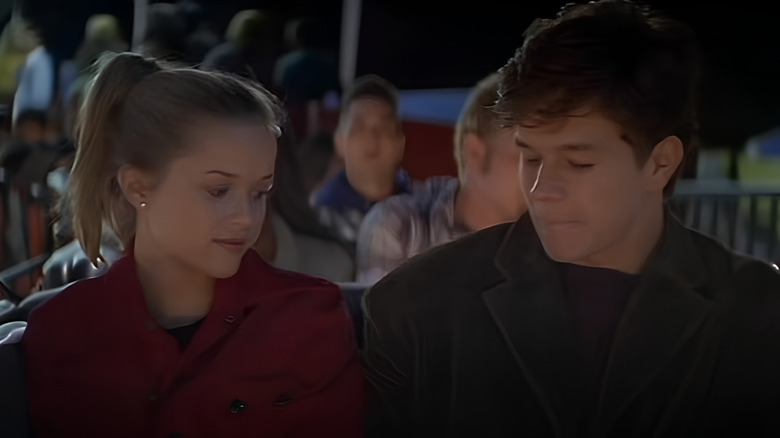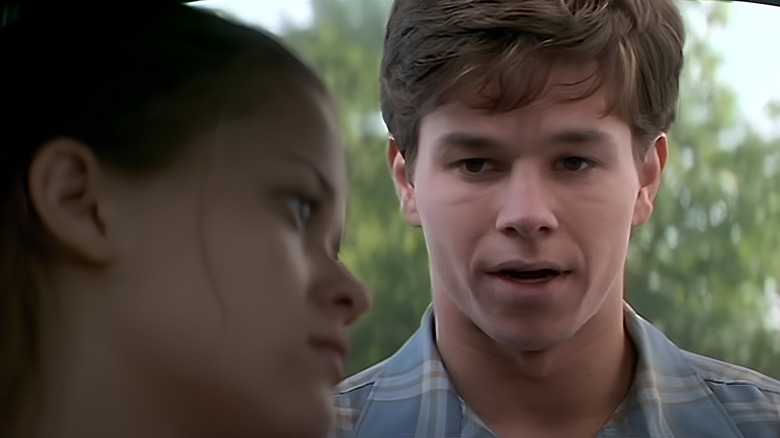Reese Witherspoon Felt She 'Didn't Have Control' Over Intimate Scene In Fear
Though Reese Witherspoon is a household name today, the busy actor and producer wasn't nearly so well-known back in 1996. Before the banner year of 1999, where she starred in "Election," "Cruel Intentions," and "Pleasantville," Witherspoon was just another up-and-coming actor chasing her dreams in Hollywood.
Unfortunately, this led to her having a somewhat troubling experience while making the 1996 thriller, "Fear," which co-starred Mark Wahlberg. The movie follows Wahlberg's David as he becomes infatuated with Witherspoon's Nicole, eventually culminating in assault and murder.
While the film may not be particularly notable among the actor's vast filmography, Witherspoon did recall being uncomfortable about filming a pivotal "Fear" scene that sees David coming onto Nicole during a roller coaster ride. "I didn't have control over it," Witherspoon told Harper's Bazaar in a recent interview. "It wasn't explicit in the script that that's what was going to happen, so that was something that I think the director thought of on his own and then asked me on set if I would do it, and I said no. It wasn't a particularly great experience"
Witherspoon asked for a stunt double for the scene
Reese Witherspoon also noted that she asked for a stunt double for the below-the-waist aspects of the scene. Though stories like this are far less common in the post-#metoo era, it's still very disconcerting to hear tales of young actors being put into these compromised positions by the entertainment industry.
"I'm certainly not traumatized or anything by it, but it was formative. It made me understand where my place was in the pecking order of filmmaking," she explained. Being that Witherspoon has gone on to become a producer on dozens of films and television shows since, experiences of this nature might help to explain why she sought more control over future projects.
Still, Witherspoon saw the situation she was put in as an opportunity for growth, for both her personally as well as the film industry. "I think it's another one of those stories that made me want to be an agent for change and someone who maybe can be in a better leadership position to tell stories from a female perspective instead of from the male gaze," she said.

